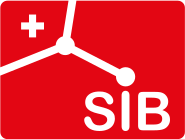Programme
Section outline
-
Tuesday March 11: Mini symposium
Genopode building, auditorium A
9:00
Welcome address9:10-9:50
Dr. Tiffanie Yael Maoz (Moss)
Weizmann Institute of Science, Rehovot, Israel
The New Face of SV Detection and Tool Development9:50-10:30
Prof. Alexandre Reymond
Center for Integrative Genomics, University of Lausanne, Switzerland
Large rare variants have a significant burden in general populations10:30-11:00
Coffee break11:00-11:40
Dr. Tobias Rausch
EMBL Heidelberg, Germany
Population-based structural variant calling using Delly11:40-12:20
Prof. Bart Deplancke
Laboratory of Systems Biology and Genetics, EPFL / SIB, Lausanne, Switzerland
Characterizing genomic variation and assessing its impact on gut immunocompetence in a natural Drosophila population12:20-13:40
Lunch13:40-14:20
Dr. Alexander Schoenhuth / Dr. Tobias Marschall
Centrum Wiskunde & Informatica, Amsterdam, The Netherlands
Discovering and genotyping twilight-zone indels with MATE-CLEVER14:20-15:00
Dr. Valentina Boeva
Inserm U900 / Institut Curie / Mines ParisTech, France
Detection of structural and copy number alterations in cancer genomes using different types of sequencing data15:00-15:30
Coffee break
15:30-16:10
Mr. Yogesh Paudel
Wageningen University, The Netherlands
Copy number variation (CNV) detection method using next generation sequencing (NGS) data16:10-16:50
Prof. Can Alkan
Bilkent University, Ankara, Turkey
Characterization of mobile element insertions using NGS17:00 FarewellWednesday March 12: Hands-on Workshop
Genopode building, room 2020
Analysing structural rearrangement of a genome with Next Generation Sequencing (NGS) data is a difficult task, especially when large insertions and deletions have to be compared to a reference genome. We developed a pipeline to compare the results obtained by various tools and combine them together to a final consensus call. During this workshop we will present our pipeline within a virtual machine (VM) allowing interested researchers to upload their own data in order to detect potential insertions and deletions.
Organisers: Wai Yi Leung / Hailiang Mei, Sequencing Analysis Support Core, Leiden University Medical Center, NL, Dr. Tiffanie Yael Maoz (Moss) Weizmann Institute of Science, Rehovot, IL, Dr. Alexander Schoenhuth / Dr. Tobias Marschall Centrum Wiskunde & Informatica, Amsterdam, NL, Yogesh Paudel Wageningen University, NL, Dr. Laurent Falquet, University of Fribourg, CH
(UNIX proficiency is required, as well as a laptop with at least 4 GB RAM, 50 GB free disk space, WIFI and VirtualBox preinstalled)
9:00 Introduction to the project, SV detection methods, tool selection (Yael, Wai Yi)
9:30 Introduction to makefiles (Wai Yi)
10:00 Running the VM and testing it (Wai Yi, Laurent, Tobias, Yogesh, Alex, Yael)
13:00 Present IGV results (Yael)
parallel group 1
14:00 How to load your own data (Wai Yi, Tobias)
15:00 How to adapt the VM for another software (Wai Yi, Tobias)
parallel group 2
14:00 Discussion of projects, current difficulties, issues (Laurent, Yogesh, Alex, Yael)
